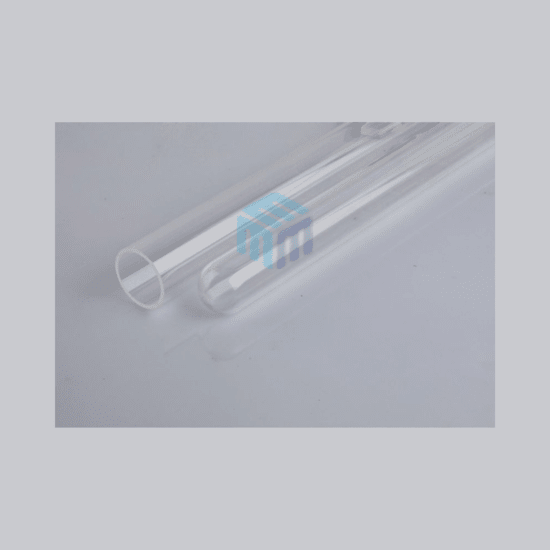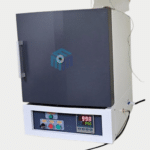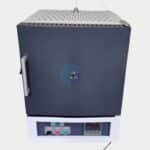Quartz tubes are highly versatile and commonly used in various industrial, scientific, and laboratory applications. Here are the key properties, uses, and maintenance tips for quartz tubes:
Properties of Quartz Tubes:
High-Temperature Resistance: Quartz tubes can withstand high temperatures, typically up to around 1200°C (2192°F) for continuous use and even higher for short-term applications. This makes them suitable for processes involving heating, annealing, and thermal treatment.
Thermal Stability: Quartz has excellent thermal stability, meaning quartz tubes can maintain their structural integrity and dimensional stability at high temperatures without softening or deformation.
Chemical Inertness: Quartz is highly resistant to most acids, alkalis, and corrosive chemicals, making quartz tubes suitable for handling a wide range of chemicals and reactive substances without degradation.
Transparency: Quartz tubes are transparent to ultraviolet (UV) and visible light, allowing for optical monitoring and analysis in UV spectroscopy, photolithography, and other optical applications.
Electrical Insulation: Quartz is an excellent electrical insulator, making quartz tubes suitable for electrical insulation in high-voltage equipment, electrical furnaces, and semiconductor processing.
Low Thermal Expansion: Quartz has a low coefficient of thermal expansion, meaning quartz tubes experience minimal dimensional changes with temperature fluctuations. This property helps prevent thermal stress-induced cracking.
Uses of Quartz Tubes:
Heating and Annealing: Quartz tubes are commonly used as heating elements or containment vessels in high-temperature processes such as annealing, brazing, melting, and soldering of metals, ceramics, and semiconductor materials.
Chemical Processing: Quartz tubes find applications in the chemical industry for chemical reactions, distillation, evaporation, and sample containment. They are resistant to corrosive chemicals and high temperatures, making them ideal for harsh chemical environments.
Laboratory Equipment: Quartz tubes are used in laboratories for various applications, including quartzware for chemical analysis, sample digestion, atomic absorption spectroscopy (AAS), and other analytical techniques requiring high-purity containers.
UV Sterilization: Quartz tubes are used in UV sterilization systems for water purification, air sterilization, and surface disinfection. The transparency of quartz to UV light allows for effective germicidal action.
Optical and Semiconductor Applications: Quartz tubes are used in optical instruments, laser systems, semiconductor manufacturing, and photolithography processes due to their optical transparency, thermal stability, and chemical inertness.
Maintenance Tips for Quartz Tubes:
Cleaning: Clean quartz tubes regularly to remove residues, deposits, and contaminants that can affect their performance. Use mild cleaning agents and avoid abrasive materials that could scratch or damage the quartz surface.
Avoid Thermal Shock: Gradually heat and cool quartz tubes to avoid thermal shock, which can cause cracking. Use controlled heating and cooling rates to minimize stress on the tubes.
Handle with Care: Handle quartz tubes carefully to prevent mechanical damage. Avoid dropping or impacting the tubes, especially at elevated temperatures.
Inspect for Damage: Periodically inspect quartz tubes for signs of wear, damage, or thermal stress. Replace any damaged tubes promptly to maintain performance and safety.
Storage: Store quartz tubes in a clean, dry environment to prevent contamination and moisture absorption. Use protective packaging or racks to avoid physical damage during storage.
By understanding the properties, uses, and maintenance tips for quartz tubes, you can ensure their optimal performance and longevity in various applications requiring high-temperature resistance, chemical inertness, and optical transparency.
M-Kube Enterprise is an Australian company catering customized laboratory products, laboratory consumables, and laboratory solutions in Australia, India, the USA, New Zealand, Singapore, Malaysia, South Korea, Dubai, the Philippines, Indonesia, and Vietnam.






